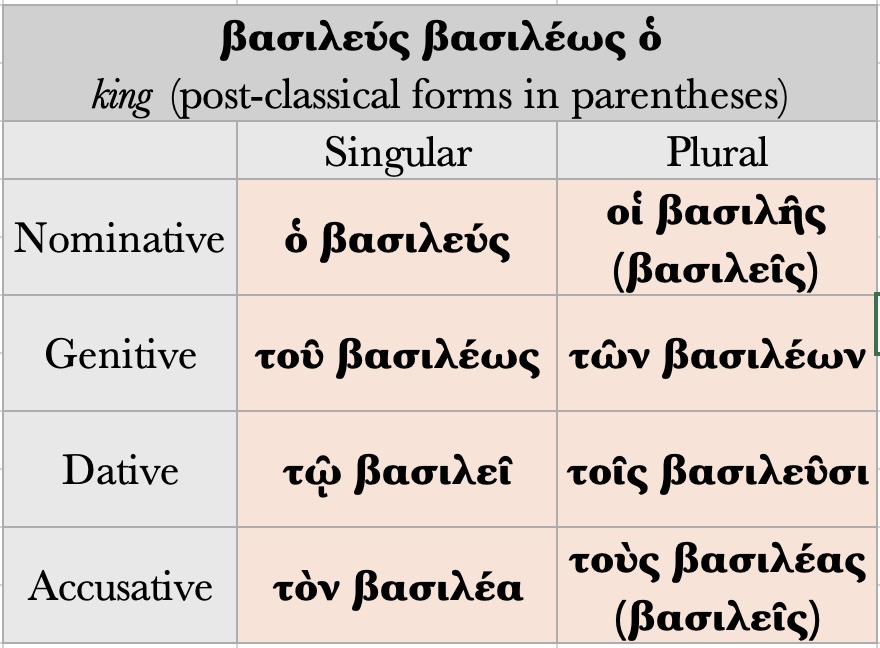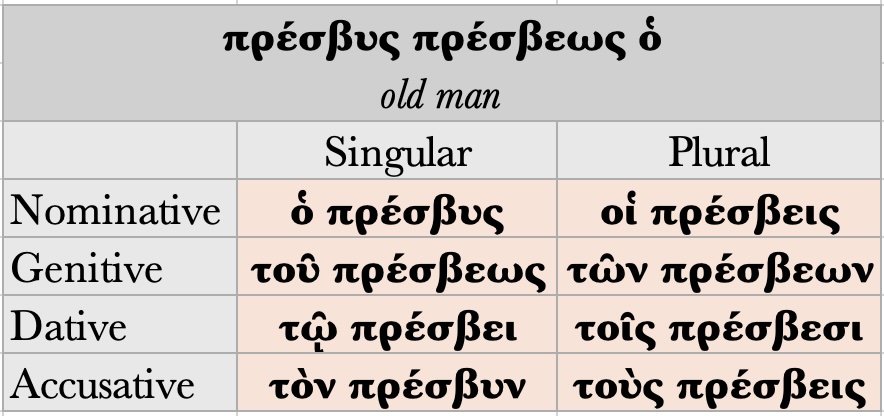24.4 As with –ι stem nouns, –υ stem nouns preserve the stem vowel only in the NOMINATIVE and ACCUSATIVE SINGULAR. In the other cases and numbers, –ε replaces –υ as the stem vowel (S 268-271, G 130-131). Many –υ stem nouns share a number of other attributes with –ι stem nouns, including:
- The genitive singular ending lengthens from –ος to –ως.
- Neither the –εως ending of the genitive singular (due to transference of quantity) nor the –εων ending of the genitive plural draw the accent off of an antepenult.
- The accusative singular uses –ν instead of –α.
- The nominative and accusative plural both end in –εες, which contracts to –εις.
24.5 Note, for example, the inflection of πρέσβυς, πρέσβεως, ὁ old man:
24.6 Kings, Priests, and Horsemen!!
Noun stems ending in –ευ exhibit more irregularities than stems that end in just –υ. The inflection patterns of these nouns must be memorized, though some observations may help. Note the following changes that occur in the inflection of βασιλεύς, βασιλέως, ὁ king (S 275, G 136):
- The noun stem –ευ drops the –υ before another vowel, leaving just an –ε for its stem vowel.
- The genitive singular ending lengthens from –ος to –ως, due to transference of quantity.
- The accent persists on the stem vowel, –ευ or –ε. Note that for the dative singular, the original form was βασιλέ–ι, the noun stem plus the case ending. These two vowels form a diphthong, and the resulting accent, as expected, forms a circumflex.
- The nominative plural lengthens the –ε to an –η (-έὲς = –ῆς).
- The endings for the accusative singular and plural do not contract (the α of both endings is long).
Not long after the Classical period, the NOMINATIVE and ACCUSATIVE PLURALS of these –ευ nouns change to –εῖς, in parallel with the endings shared by –ι stem nouns and –υ stem nouns such as πρέσβυς, πρέσβεως, ὁ. The rest of the noun inflects as it did in the Classical period.
24.8 Also inflected on this pattern are the following two nouns:
- ἱερεύς, ἱερέως, ὁ priest
- ἱππεύς, ἱππέως, ὁ horseman, charioteer




